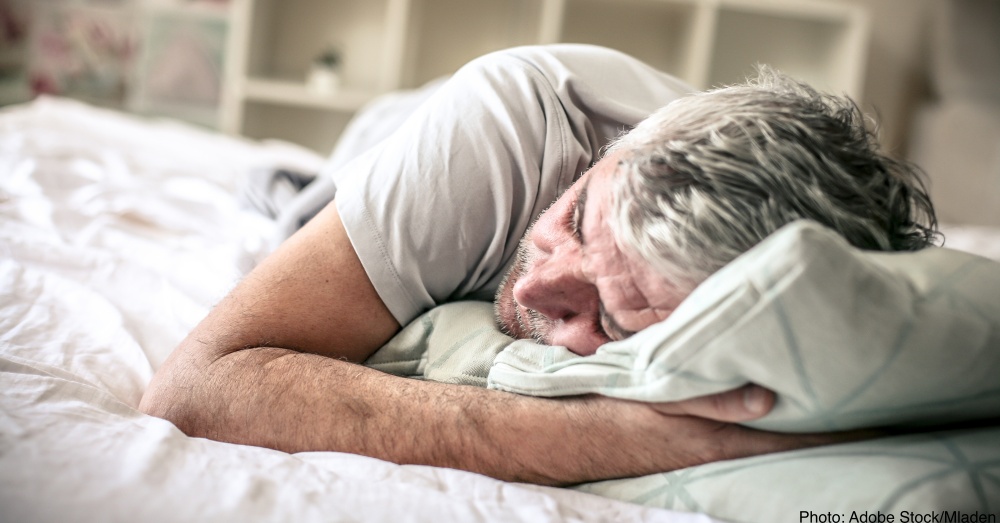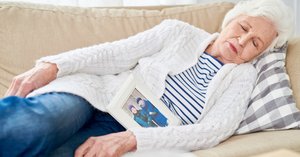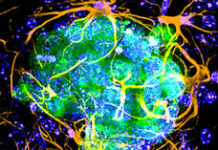Excessive drowsiness during the day could be an indication that something more sinister is happening in the body.It’s a condition called hypersomnolence. It can affect a person’s daily life to the point of being debilitating, as they may fall asleep at work, during an event or meal, or while having a conversation with other people.A red flag for the condition is being excessively tired and needing to nap repeatedly during the day even after seven or more hours of sleep at night. Other key signs and symptoms of hypersomnolence include: frequent naps within the same day, not feeling rested or refreshed after a full night’s sleep, problems fully waking up from a long stretch of sleep, and feeling confused or disoriented for minutes or hours after waking. These symptoms need to occur at least three times a week for three months in order to be considered as hypersomnolence.Previous research has seen a link between excessive drowsiness during the day and mental decline, memory issues, and even Alzheimer’s. Photo: Adobe Stock/Seventyfour
Photo: Adobe Stock/Seventyfour
If an individual experiences hypersomnolence and they’re over the age of 65, they may be at risk of developing other medical conditions such as cancer, high blood pressure, and diabetes, the study found.The results were published in the American Academy of Neurology.Researchers spoke with 10,930 people over the phone on two separate occasions, three years apart, and asked them a series of questions about their sleep habits and health. Roughly a third of the participants (34%) were at least 65 years old at the time of the first phone interview. Photo: Adobe Stock/Mladen
Photo: Adobe Stock/Mladen
In the first round of phone calls, 23% of participants over 65 (840 people) were deemed to have hypersomnolence.Of those 840 people, 52 of them (6.2%) developed diabetes three years later. Of the seniors who reported they were never sleepy during the day at the first interview, only 74 people (2.9%) developed diabetes.Those who reported hypersomnolence at the first interview also had a higher incidence of cancer, with 20 of them (2.4%) developing cancer, compared to only 21 people (0.8%) in the non-drowsy group. Seniors with hypersomnolence also had a 2.3 times greater risk of developing high blood pressure compared to the other group. Photo Credit: Adobe Stock/Monkey Business
Photo Credit: Adobe Stock/Monkey Business
In the second interview, around a quarter (24%) of seniors over 65 reported excessive sleepiness. Of that quarter, 41% said the sleepiness was a chronic problem.The seniors who reported hypersomnolence only in the second interview were 50% more likely to have diseases like arthritis, tendinitis, and lupus (diseases of the musculoskeletal system and connective tissue) compared to those who did not have daytime sleepiness.Participants who reported hypersomnolence during both interviews had a 2.5 times greater risk of developing heart disease compared to those who did not. Photo: Adobe Stock/doupix
Photo: Adobe Stock/doupix
Dr. Maurice M. Ohayon, M.D., Ph.D., DSc, of Stanford University in California, is one of the study’s authors and a member of the American Academy of Neurology.“Paying attention to sleepiness in older adults could help doctors predict and prevent future medical conditions,” Ohayon said. “Older adults and their family members may want to take a closer look at sleeping habits to understand the potential risk for developing a more serious medical condition.”Researchers adjusted for other factors that could affect sleepiness, such as sleep apnea, to get these results. One limitation of the study, however, is that the data was pulled from the participants’ memories rather than sleep studies in a sleep clinic or something similar.Source









